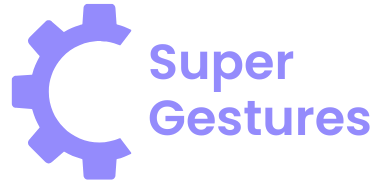Table of Contents
ToggleIn a world where coding skills are the new superpowers, diving into tutorials can feel like discovering a hidden treasure map. Whether you’re a newbie looking to decode the mysteries of programming or a seasoned pro wanting to brush up on the latest trends, there’s a tutorial out there just waiting to be your trusty sidekick.
Overview of Tutorials on Coding
Numerous tutorials on coding exist online, providing essential resources for various skill levels. Beginners can find structured paths designed to introduce fundamental concepts through interactive exercises. Experienced coders often rely on advanced tutorials to refine their skills or learn new programming languages and frameworks.
Platforms like Codecademy offer self-paced courses that blend theory with hands-on coding projects. Sites such as freeCodeCamp focus on practical applications, allowing users to build real-world projects while learning. These approaches enhance understanding and retention of coding practices.
Video tutorials serve as a popular medium, appealing to visual learners. YouTube hosts countless channels dedicated to teaching coding, featuring step-by-step instructions and demonstrations. This format enables learners to pause or replay sections for clarity, fostering a more enriching experience.
Documentation for programming languages is another valuable resource. Official documents often contain comprehensive guides and examples that clarify functionalities. Familiarizing oneself with these documents helps streamline the learning process, providing quick access to essential information.
Online coding communities like Stack Overflow offer support through discussions and Q&A platforms. Users can share problems and solutions, creating a collaborative learning environment. This interaction not only resolves specific coding queries but also exposes learners to various perspectives and techniques.
A diverse range of tutorials on coding exists, each catering to different learning styles and objectives. These resources contribute significantly to skill development, making coding accessible and engaging for everyone.
Types of Coding Tutorials
Coding tutorials come in various forms, catering to different skill levels and learning preferences. Each type offers distinct benefits, ensuring every learner finds suitable resources.
Beginner Tutorials
Beginner tutorials introduce foundational concepts in programming. They cover essential topics such as variables, loops, and functions. Structured courses on platforms like Codecademy guide users through interactive lessons. Videos on YouTube provide visual demonstrations, making learning engaging. Step-by-step exercises reinforce learning. These resources often include quizzes and projects to solidify understanding. As a result, beginners gain confidence in their coding capabilities quickly.
Intermediate Tutorials
Intermediate tutorials build on foundational skills. They focus on more complex topics, such as algorithms and data structures. Many coding platforms offer specialized courses tailored for learners ready to advance. Participants explore frameworks and libraries commonly used in the industry. Practical projects simulate real-world applications, enhancing problem-solving abilities. Collaboration opportunities often arise in coding communities, fostering peer support and knowledge sharing. Interested learners also benefit from targeted resources that deepen their understanding of specific languages.
Advanced Tutorials
Advanced tutorials challenge seasoned coders. These resources dive into specialized areas like artificial intelligence or web development. Participants tackle intricate projects, requiring a high level of expertise. Platforms like Coursera provide in-depth courses from universities on advanced topics. Learning often involves collaboration on GitHub, encouraging real-world coding practices. Keeping up with emerging trends is vital, as rapid technological changes shape the industry. Overall, advanced tutorials equip learners with the skills to excel in highly competitive environments.
Popular Platforms for Tutorials on Coding
Numerous platforms offer extensive tutorials on coding, catering to various learning preferences. Among these, online learning platforms stand out due to their structured courses.
Online Learning Platforms
Platforms like Codecademy and Coursera provide users with interactive lessons that engage learners at all levels. Each course often includes quizzes that reinforce key concepts. Learners can explore numerous programming languages through these platforms. Additionally, Udemy features a wide range of tutorials, allowing for purchasing courses tailored to individual needs. Self-paced learning promotes flexibility in mastering coding skills.
YouTube Channels
YouTube channels deliver valuable coding tutorials through engaging video content. Creators like The Net Ninja and Traversy Media focus on practical coding skills through step-by-step guides. Each video often dives into specific topics, making it easy for viewers to follow along. Visual learners benefit significantly from this format. Additionally, channels offer real-time coding demonstrations, reinforcing key concepts through visual examples.
Coding Bootcamps
Coding bootcamps provide immersive learning experiences for those seeking intensive training. Programs like Le Wagon and General Assembly often guarantee career support after completion. Participants dive deeply into practical projects, building portfolios that enhance job prospects. Each bootcamp emphasizes teamwork, fostering collaborative environments simulating real-world scenarios. Graduates leave with robust coding skills and practical experience ready for the job market.
How to Choose the Right Tutorial
Choosing the right coding tutorial enhances learning efficiency and engagement. Various factors, such as skill level and learning style, influence this decision.
Assessing Skill Level
Identify your current coding expertise before selecting a tutorial. Beginners benefit most from foundational tutorials that introduce basic concepts like variables and loops. Intermediate learners should look for resources focusing on algorithms and data structures to build on existing knowledge. Advanced coders must seek tutorials that dive into specialized topics such as artificial intelligence and web development. Evaluating skill level ensures a tailored learning experience, making complex concepts more approachable.
Understanding Learning Styles
Recognize personal learning preferences when choosing a tutorial. Visual learners often excel with video content, while auditory learners might prefer podcasts or lectures. Hands-on learners benefit from interactive coding exercises and quizzes that reinforce concepts through practice. Reading enthusiasts should consider written tutorials and official documentation that provide in-depth explanations. Matching the tutorial format to learning style helps maximize retention and skill acquisition.
Tips for Making the Most of Coding Tutorials
Using coding tutorials effectively requires a strategic approach. First, set clear learning objectives. Identifying specific goals helps focus the learning process and keeps motivation high.
Next, engage actively with the material. Note-taking during video tutorials or coding exercises enhances comprehension and retention. Actively participating in coding challenges solidifies understanding.
In addition, join online coding communities. Interacting with fellow learners on platforms like Stack Overflow fosters collaboration. Asking questions and sharing progress can clarify concepts and expand knowledge.
Additionally, leverage multiple resources. Exploring various tutorials can provide alternative explanations that may resonate better. Combining video tutorials with official documentation ensures a well-rounded understanding of programming concepts and languages.
Working through practical projects reinforces skills learned in tutorials. Building small applications or contributing to open-source projects demonstrates practical application of theoretical knowledge.
Furthermore, regularly review previous tutorials. Revisiting concepts solidifies foundational knowledge and aids in long-term retention. Utilizing spaced repetition techniques can further enhance the learning experience.
Embrace a growth mindset. Encouraging oneself to learn from mistakes fosters resilience and adaptability in the face of challenges. Understanding that struggle is part of the learning process is crucial for success.
Lastly, assess progress often. Setting milestones and evaluating achievements keeps learners on track. Regular self-assessment ensures that tutorials remain effective and relevant to individual learning paths.
Mastering coding skills opens doors to countless opportunities in today’s digital landscape. By exploring a variety of tutorials tailored to different skill levels and learning styles, individuals can find the right resources to enhance their programming journey. Engaging with interactive lessons or diving into video content can make the learning process enjoyable and effective.
Joining online communities fosters collaboration and support, helping learners stay motivated and connected. With a wealth of platforms available, from structured courses to immersive bootcamps, anyone can embark on their coding adventure. Embracing these resources not only builds foundational skills but also prepares learners for the challenges of a rapidly evolving tech world.




